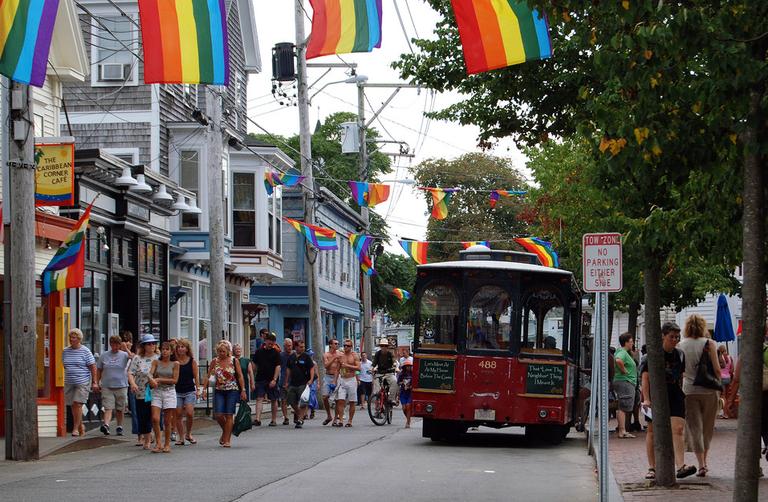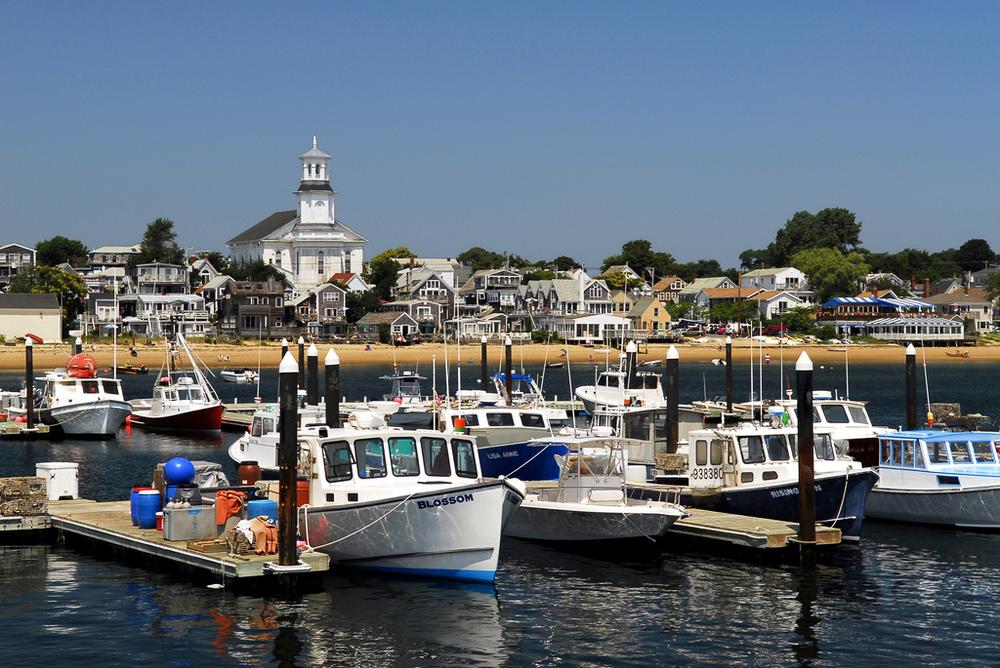Advertisement
Provincetown High Closes Its Doors — For Now

Tears will surely flow for the 16 members of the Class of 2010 as they graduate Friday from the high school at the tip of Cape Cod. It will be a bittersweet day, as the class will be among the last to graduate from Provincetown High School. The seniors, their parents and the town were informed a few weeks ago that the high school is closing.
It's the kind of school where long-time teachers often remember having taught the parents of their students. “I have a lot of roots here, my grandfather graduated from this school, both my parents did, and I just always thought it would be neat thing if I graduated from here also," says one graduating senior, in a DVD produced for the school by the Class of 2010.
But much has changed since that senior's parents were in school here. In a building that housed hundreds just a generation ago, there are now just 56 students in grades seven through 12. That makes for an intimate school, where students say their classmates can feel more like family. But that small student body is also what's closing the school down. The Provincetown school committee has decided there aren't enough kids to keep the doors open.

The decision has been wrenching. "The school committee was crying," remembers Peter Grosso, the committee chairman, of the night they announced their decision to a room of anxious townspeople. "I pretty much had to maintain my composure, which wasn't easy either, and I said, 'Unfortunately, this doesn't come easy, but we have to phase out the high school.' "
As you might imagine, it hasn’t been easy inside Provincetown High, either. Principal Kim Pike says a few underclassmen have already decided to go to other Cape schools starting this fall. The problem, she says, is when students look behind them — and there's nothing there. No incoming classes to fill the school as they move up to become seniors. No younger students to take to the prom.
Some teachers have decided to leave too, while other teachers didn’t have a choice. Since the news of the school's closing, five of high school's 22 high teachers have announced their retirements. Several others are being let go. The rest are keeping their jobs — for now.
Advertisement
Amy Rokicki, an English teacher who has been at the school for 14 years, will stay on next year. While the future is uncertain, she says it's not herself who she feels sorry for. "I feel sad for the community, that there's not going to be that life of young people bubbling here in the center of town," Rokicki says.
A high school is not contained within the walls of the building, she says. "The basketball games, the plays — the life that extended beyond into the community, beyond just the students being here in the school — I think is what's difficult to mourn," Rokicki says.
Lives and generations are sometimes built around the high-school years: those events your parents attended and, if you stayed in town, the ones you watched your kids in. But time has not been kind to Provincetown High. The high school has slowly fallen victim to Provincetown’s transformation over several decades into the quirky and popular summertime tourist mecca it is today. Here, traffic is always jammed and it can be tough to find a place to park or a seat in a restaurant.
“Over the last 10 years, I've watched the winters die.”
-- Napi Van Dereck, restaurateurSummer’s one thing, but the off-season is a very different story. "Over the last 10 years, I've watched the winters die," says Napi Van Dereck, a long-time Provincetown restaurateur and an unofficial historian of the town.
Van Dereck has seen his business in the winter fall by as much as 60 percent over the last 10 years or so and he blames it on what he calls "condo-ing" — skyrocketing real-estate prices have made it impossible for locals to stay local.
The full-time year-round population has fallen steadily this decade. Van Dereck worries closing the high school will make it even worse. "Any time the town loses something as fundamental as that, it alters the town quite a bit," he says.
Van Dereck has his own idea for saving the high school. He thinks the town should capitalize on Provincetown’s respected cultural reputation and open an arts charter school. He acknowledges it wouldn’t be easy, but he doesn't think that's a good enough reason not to try.
"I think that it still has to be something you go out and kick ass for," Van Dereck says. "A group of people have to get together and say, 'Let's see if we can make this happen.' That's what we're missing — there is no central point at which something reaches out to the community and says, 'Pay attention.' "
School officials say the town isn’t likely to open an arts charter, or a charter of any kind. Instead, the plan is to save the younger grades. Provincetown is revamping it's kindergarten through eighth-grade classes using a respected model of global education called International Baccalaureate. The hope is that as the younger kids get to high-school age, there will be enough demand to reopen the high school.
Amy Rokicki and her fellow teachers are hopeful. "I like the language that we were using — that we're going to sleep for a few years, or we're in hiatus. That we're not closing, we're just getting quiet for awhile and regrouping," she says.
And the school committee has dangled some hope. It's actually put it in writing: If 80 students knock, Provincetown High will reopen its doors.
This program aired on June 11, 2010.